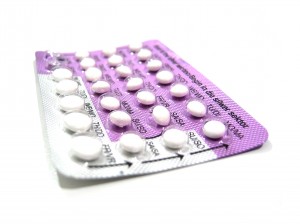The Institute for Women's Health Research blog was recently recognized for its excellence in editorial content to the health student world by KwikMed, one of two fully licensed online pharmacies in the USA. A panel of judges reviewed hundreds of different sites from across the internet before hand picking the best 18. According to the panel: The aim of this blog is to make some of the biggest issues in women's health research more accessible in the modern world and speed up the time it takes for scientific research discoveries to impact women's health and well being in everyday life. Based at Northwestern University, hot topics include breast cancer, pregnancy, sex differences and weight managment. This blog brings to light important pieces of legislation that relate to women's health such as aspects of the Affordable Care Act. A great blog for women's health medical practitioners and interested students across America. To view the other winners, click HERE.
Ms. Magazine has a new blog post about the drug Flibanserin, which is touted as the female Viagra. The post brings up some interesting points about the psychosocial issues surrounding female sexuality and encourages the FDA to reject the drug. Rather than treat low female libido with pharmaceuticals, the article encourages the government to increase their commitment to sexual education.

While I agree that it is necessary to address the cultural pressures on women, it is also important to help women with medical arousal problems. Some of these problems are actually caused by other pharmaceuticals. The birth control pill, itself, comes with a significant side effect. In exchange for reproductive freedom, many women on the pill experience problems with sexual arousal and climax.
Flibanserin is a mix of two drugs that affect the neurotransmitter serotonin. It is an agonist, or activator, of the serotonin receptor called 5-HT1A, and an antagonist, or inhibitor, of the 5-HT2A serotonin receptor. In clinical trials, the drug only moderately improved sexual function but the side effects didn’t seem that severe either. They included dizziness, nausea, fatigue, and insomnia, which seem to be on all drug labels these days. Given all this information, should the drug be on the market? Give the FDA a chance to decide.
Welcome to the Institute for Women’s Health Research Blog!
Established in November of 2007, the Institute for Women’s Health Research was created at Northwestern University to help accelerate basic science and clinical research that will advance our knowledge of women’s health. Our mission is to increase the women’s health research portfolio at Northwestern University and our clinical affiliates; we focus on 5 ambitious goals to accomplish this mission:
- To foster research that explores the sex and gender determinants of health and disease with an emphasis on women
- To encourage interdisciplinary research, diversity inclusiveness and a comprehensive approach to women’s health research
- To prepare researchers, scientists and clinicians who understand the sex and gender determinants of health and disease; develop leadership among women and girls interested in science
- To accelerate the translation of basic science research into clinical practice
- To become the authoritative resource for the community on women’s health issues and provide opportunities for the community to engage in the advancement of women’s health
Please check back soon, we will be updating often and we welcome feedback! What do you think are the top issues related to women's health?
